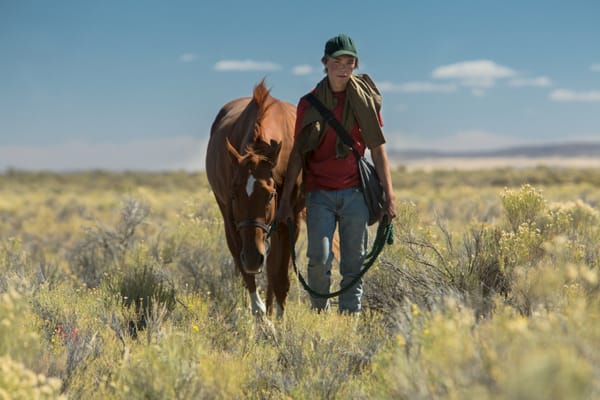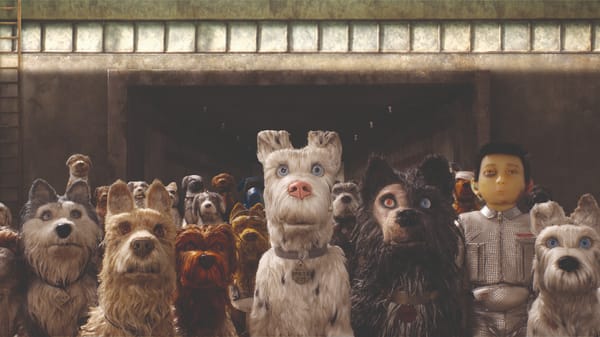Nailed It!, Netflix, and the death of modern TV
Netflix and other streaming services have brought with them a new raft of options for TV enthusiasts, but as they spread their resources thinner and thinner, hoping to get another hit, the viewers are losing out, lost amid a increasing pool of crap.

In 1978, the author and activist Jerry Mander released a book entitled Four Arguments for the Elimination of Television. Mander, who had worked in the advertising world for 15 years before turning his attention more fully to activism, argued television was not a neutral technology, but rather contained within it an intrinsic power to misinform and control populations. “What is revealed in the end,” Mander wrote, “is that there is ideology in the technology itself. To speak of television as ‘neutral’ and therefore subject to change is as absurd as speaking of the reform of a technology such as guns.”
I would like to propose a fifth argument for the elimination of television: the existence of the TV show Nailed It! The series – which must be the first example of a television series being inspired solely by a meme – sees three amateur bakers attempt to construct complicated culinary creations while host Amanda Byer provides gently sarcastic commentary. The emphasis is on ‘amateur’, rather than ‘baker’: unlike The Great British Bake Off, where contestants can knock up a dozen perfect macarons in their sleep, the people brought on in Nailed It! are home cooks through and through. Cakes are iced warm, tiers collapse, and the sugar sculptures look like something from House of Wax.
Nailed It! is, as you may have guessed, a Netflix original – one of the roughly 700 films and TV programmes the streaming giant plans to release this year. The cost of bringing this sheer amount of content to the provider’s 104 million global subscribers is no small feat: their content budget for this year currently stands at around $8 billion, roughly equivalent to the GDP of Haiti. A large proportion of this money will go on the service’s flagship productions, such as monarchy-based drama The Crown, whose first season cost a reported $130 million to make.
This growth has another cost, however, and that is the deluge of trite, dull, trashy shows that are currently flooding our screens. Series like Bojack Horseman and films like Alex Garland’s Annihilation are like pieces of flotsam amid a tidal wave of mediocrity, and, as Netflix is increasingly aggressive in its pursuit of original content, it seems likely things will only worsen.
How did we get to this position? Just a few short years ago, Netflix seemed to be the salvation for TV in the modern age, a platform that could fund and promote high quality content to fill our screens. Netflix’s first breakthrough – six years after they began offering streamed content – was with the release of the first series of House of Cards, which was their first original piece of programming. While they had previously been satisfied with merely being a platform for the work of others, with House of Cards they began to shape their image as major television producers.
“Netflix’s growth has led to a deluge of trite, dull, trashy shows flooding our screens”
They swiftly followed this up with Orange is the New Black, an ensemble drama about incarcerated women that married showrunner Jenji Kohan’s bold, colourful vision with intersectional feminism. Those two shows, alone, garnered eleven Emmy awards, and two Golden Globes for Netflix.
At the time, these shows seemed to mark a turning point for the television industry coming along just as we were beginning to reach the end of the golden age of TV. The series of tragic prestige dramas, most notably embodied in The Sopranos, had their final hurrah with AMC’s masterpiece Mad Men, which remains a reference point for high-quality, slow-burn television. As we bid farewell to Donald Draper and Peggy Olsen, however, there was concern over what might come next, and streaming services stepped in to fill the void. Indeed, going back to a little under a decade ago, we seemed to be on the precipice of a new cultural landscape: water cooler discussions were being replaced with binge-watching, Twitter provided a new platform for real-time critiquing, and the phrase ‘Netflix and chill’ entered into our shared lexicon. In 2015 and 2016, the Pulitzer Prize for Criticism was awarded to TV critics, seemingly cementing the central role TV was having on the entertainment landscape.

There is no doubt that this second wind can be attributed to streaming services; while Netflix planted the flag, becoming most closely associated with the new generation of prestige dramas, Amazon Studios and Hulu were quick on its heels, with series like Transparent and The Handmaid’s Tale picking up accolades left, right, and centre.
What Nailed It! shows, however, is how this relationship has soured, and the promised golden age has become an ever-receding dream. As Netflix increasingly pivot to self-produced content, works of true quality are becoming harder to make out: in return for The Crown, we have to have The Get Down (cancelled after a single drawn-out season); for every Unbreakable Kimmy Schmidt there is a Girlboss (described as ‘so unrelentingly tone-deaf to the human condition it’s hard to know where to start’); and meanwhile good quality shows like Midnight Diner: Tokyo Stories get pushed off the landing page.
“The main question Nailed It! prompts is why does such a show exist in the first place?”
Nailed It! isn’t a particularly bad show. It’s well-meaning and warm, wearing its game show format lightly. But as a piece of programming, the main question it prompts is why? Why does such a show exist? Who pitched it to Netflix, and why was it funded? Buoyed on by the success of their early shows, Netflix seems desperate to replicate the success of its early days, but rather than channeling their ever-increasing reserves into a few choice projects, they are spreading it among as many things as possible, hoping some will make it big on the off chance. The result is chaotic. With new shows and films being released every week, it’s paradoxically more and more difficult for the viewer to find stuff worth watching; we’re like Buridan’s ass, trapped in front of an endless sea of choice, but paralysed into indecision.
And this isn’t even beginning to consider the impact streaming services are having on the film industry. In particular, the Cannes Film Festival has been waging a war against Netflix, last year announcing all films screening in the festival would need to have a theatrical distribution in French cinemas; in response, Netflix pulled all their entries from this year’s festival, including those that didn’t fall under the distribution rules. David Sims, staff writer for The Atlantic, has called Netflix’s corporate strategy “aggressive and unusual even for a streaming company”, but has predicted Cannes will soon cave in, facing the sheer glut of Netflix releases, which is consistently growing.
This mania isn’t helped by the lack of comprehensive data on what exactly people are watching, which can make it increasingly difficult to decide what to watch. Netflix has been notoriously secretive about what exactly its customers are watching – Nielsen previously announced a new service to measure how many people were watching episodes of individual TV shows on streaming services, but Netflix were quick to point out the data were “not accurate, not even close, and do not reflect the viewing of these shows on Netflix.”
“Streaming services are channeling their resources into making sure every click is directed towards self-produced content”
It is unclear whether Netflix wants to hide these viewing figures in order to gain a competitive edge over the competition, to help hide which shows are performing poorly, or for any other reason. Earlier this year, a report was released by 7Park Data, which claimed Netflix originals only made up about 20% of viewing figures on the platform, with the remainder being people watching licensed content, which Netflix has purchased from other producers. Netflix refused to comment.
What this secrecy does mean, is that it’s increasingly difficult for the average viewer to decide what to watch. Previously, TV addicts could look to the ratings to see which shows were getting the largest audiences, and would be worth their time – of course, popularity doesn’t directly correlate to quality, but it can be a good proxy, allowing us to know what we should see to keep up with the changing cultural landscape. Today, viewers need to rely on positive write-ups in papers or on websites, or on recommendations through social media, to know what they should be tuning into. This, combined with the sheer quantity of programmes now available, puts the viewer in a vulnerable position, with ever-increasing choice and an ever-diminishing ability to tell the wheat from the chaff.
Netflix has exploited that gulf: as soon as you navigate to the Netflix website, you’re greeted with an advert for whatever Netflix Original they’re currently plugging (at the time of writing it’s Dear White People, the satirical college series, based off the slightly-shaky film of the same name by Justin Simien). Scroll down, and you’re presented with another raft of Netflix Originals to pick from; as you keep on scrolling down, and the categories get more complex, you’re almost always guarenteed to see the little red ‘Netflix’ denoting original content at multiple points on the screen.
The question that this brings us back to, then, especially when considering that quality of shows like Nailed It! is whether or not the programmes Netflix are pushing are because they’re suited to us, or simply because they’re made by Netflix. In an effort to stay ahead of the tough competition, the streaming services are channeling their resources into making sure every click, hit, or view is directed towards content they produce and own. And the result is diminishing returns for us – the consumers.
Netflix needs to take a break, and decide what kind of platform it wants to be, rather than trying to be all things at once. But, with Barack Obama currently in talks to produce shows for Netflix, it seems unlikely the stream of content will ever stop.









